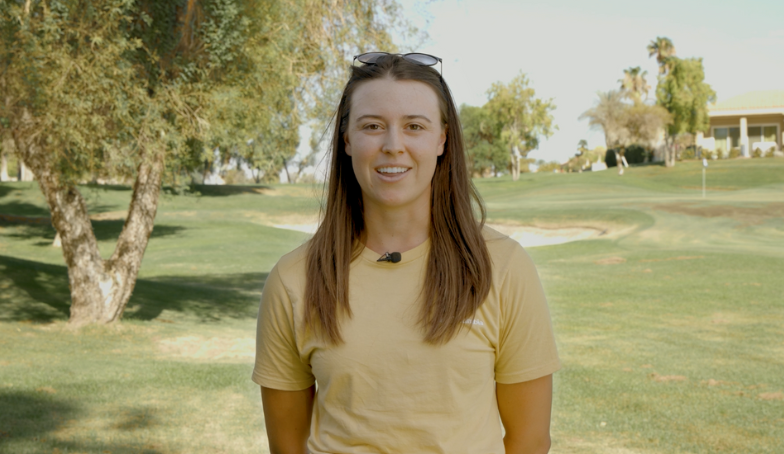Pro golfer Cristiana Ciasca picked up her first set of golf clubs when she was 11-years-old after watching her grandma fall in love with the sport. Little did Ciasca know then that what started as a passion she and her grandma were able to share would one day become her career.
Now 24-years-old, Ciasca is working to qualify for the Ladies Professional Golf Association (LPGA) Tour. However, she worries the LPGA’s policy allowing trans-identified males who undergo wrong-sex hormone therapy and surgery to compete in the women’s division will undermine the opportunities she and so many other female golfers have been working toward their entire lives.
At the LPGA’s Qualifying School (also known as Q-School) competition this summer, Ciasca and hundreds of other female golfers were forced to compete against Hailey Davidson, a trans-identifying male who has won at least two women’s events since 2021. Though Davidson did not end up qualifying for the LPGA Tour this year, the male golfer did earn Epson Tour status through 2025.
Regardless, any competition in which a female athlete is forced to compete against a male is unfair, Ciasca pointed out.
“There are biological differences between men and women,” Ciasca told IW Features. “And when competing on an athletic level, those differences are exaggerated because of the differences in men and women’s bodies.”
On the golf course, especially, there are distinct biological advantages male players have over their female counterparts. Men have about a 30% performance advantage when it comes to driving the ball, and have greater physical endurance to play lengthy courses or courses at higher altitudes. These “anatomical differences are not removed with male testosterone suppression,” argued Ciasca and 275 other female golfers in an open letter to the LPGA this year.
“We all know there can be no equal athletic opportunity for women without a separate female golf category,” the female golfers continued. “Yet, the Ladies Professional Golf Association (LPGA) continues to propagate a policy that allows male athletes to qualify, compete and win in women’s golf, even as several national and international governing bodies of sport and state legislatures increasingly reject these unjust and inequitable policies that harm female athletes.”
The LPGA is set to release new guidance on transgender athletes next month.
Ciasca said she hopes LPGA leadership recognizes how important it is for women to have teams and events exclusively for themselves.
“We need to have an equal playing field against other women, but we also need our own community and camaraderie,” she said.
That community is what has pushed Ciasca to pursue golf full-time, even amidst setbacks. She didn’t earn status at this year’s Q-School, but Ciasca said she plans to enter some Epson Tour events and try for the LPGA Tour again next year — hopefully this time against only female athletes.
“Being able to have a fair opportunity to compete and get to my dream like others before me is very important,” she said.
One way to make sure that happens is if athletes use their “unique platform” to fight for what’s right, Ciasca added.
“As athletes, we have the ability to be bold in what we do,” she said. “This is one of the privileges of competing and climbing the ranks. Use your voice, use your platform. At the end of the day, you’re bold enough to compete. So be bold enough to defend what you believe in.”









